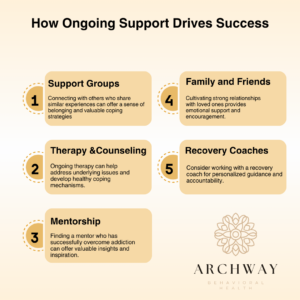Understanding Brain Recovery After Heroin Use: What to Expect When You Quit
Heroin mental health wreaks havoc on the brain, altering its chemistry and circuitry. The journey to recovery involves not just overcoming physical dependence but also healing the brain’s reward system.
Heroin, a potent, hijacks the brain’s reward system by flooding it with dopamine, a neurotransmitter associated with pleasure. Over time, the brain adapts to this artificial surge, reducing its natural dopamine production. This rewiring leads to cravings, tolerance, and dependence.
Quitting heroin is a challenging process, but the brain possesses remarkable plasticity, allowing it to heal and reorganize itself. With time and appropriate support, the brain can gradually restore its natural balance.
Withdrawal Symptoms and the Healing Process
Quitting heroin is a challenging process often accompanied by physical and emotional withdrawal symptoms. These symptoms can vary in intensity and duration depending on the individual’s usage patterns and overall health.
Physical Withdrawal Symptoms
- Agitation and restlessness
- Muscle aches and pains
- Nausea and vomiting
- Diarrhea
- Sweating
- Insomnia
- Fever
- Chills
Emotional and Psychological Withdrawal
- Cravings
- Depression
- Anxiety
- Irritability
- Mood swings
- Difficulty concentrating
While withdrawal can be uncomfortable, it’s a temporary phase in the recovery process. With proper medical support and care, these symptoms can be managed effectively.
The brain’s remarkable ability to heal and adapt, known as neuroplasticity, plays a crucial role in recovery. As the body adjusts to the absence of heroin, the brain begins to repair itself and restore normal functioning. This process takes time and patience, but with appropriate support, individuals can regain control of their lives.
Improved Mood and Restoration of Neurotransmitters
Heroin mental health disrupts the brain’s delicate balance of neurotransmitters, leading to mood disturbances and cravings. As the brain begins to heal, individuals often experience an improvement in mood, reduced anxiety, and a greater sense of well-being.
Decreased Cravings and Enhanced Resilience to Triggers
One of the most challenging aspects of recovery is dealing with cravings. As the brain’s reward system begins to normalize, cravings gradually diminish. Individuals in recovery often report increased resilience to triggers and temptations, allowing them to navigate high-risk situations with greater confidence.
Emotional Healing and Enhanced Quality of Life
Recovery from heroin mental health offers an opportunity for emotional healing and personal growth. As the brain recovers, individuals may experience a renewed sense of purpose, increased self-esteem, and improved relationships.
Enhanced Cognitive Function and Neuroplasticity
Heroin mental health can impair cognitive function, affecting memory, concentration, and decision-making. With abstinence, the brain’s neuroplasticity allows for the restoration of these cognitive abilities. Improved cognitive function contributes to overall well-being and facilitates a successful return to daily life.
Brain Neuroplasticity and Recovery
One of the most remarkable aspects of the human brain is its ability to adapt and change, a process known as neuroplasticity. This adaptability is crucial in the recovery process from heroin mental health.
As the brain begins to heal from the effects of heroin, it starts to rewire itself. New neural connections form, and the brain’s reward system gradually returns to normal functioning. This process takes time and patience, but it’s essential to understand that the brain has an incredible capacity for recovery.
Factors such as therapy, support groups, and healthy lifestyle choices can significantly enhance the brain’s ability to heal. With consistent effort and dedication, individuals in recovery can experience remarkable improvements in their overall well-being.
Long-Term Effects and Challenges
While the brain’s neuroplasticity offers hope for recovery, it’s essential to acknowledge that the effects of heroin mental health can have long-lasting consequences.
- Cognitive Impairment: Some individuals may experience ongoing challenges with memory, concentration, and decision-making.
- Emotional Struggles: Depression, anxiety, and mood swings can persist even after detoxification.
- Relapse Prevention: Developing effective coping mechanisms and relapse prevention strategies is crucial for maintaining sobriety.
- Social and Relationship Challenges: Rebuilding trust and repairing damaged relationships takes time and effort.
- Physical Health Issues: The long-term effects of heroin use on the body, such as heart and liver problems, may require ongoing medical attention.
Celebrating Successes: A Cornerstone of Recovery
Acknowledging and celebrating milestones in recovery is crucial for maintaining motivation and building self-esteem. Each step forward, no matter how small, deserves recognition.
- Setting Achievable Goals: Breaking down recovery into smaller, manageable steps helps track progress and celebrate achievements.
- Positive Reinforcement: Reward yourself for reaching milestones, but avoid using substances as rewards.
- Building a Support Network: Share your successes with loved ones and support groups to amplify the positive impact.
- Mindfulness and Gratitude: Focusing on the present moment and expressing gratitude for progress can enhance overall well-being.
By celebrating successes, individuals in recovery can foster a positive mindset and reinforce their commitment to a healthier lifestyle.
The Importance of Continued Support
Building a strong support network is essential for maintaining long-term recovery. Surrounding yourself with understanding and supportive individuals can provide encouragement, accountability, and companionship.
- Support Groups: Connecting with others who share similar experiences can offer a sense of belonging and valuable coping strategies.
- Family and Friends: Cultivating strong relationships with loved ones provides emotional support and encouragement.
- Therapy and Counseling: Ongoing therapy can help address underlying issues and develop healthy coping mechanisms.
- Recovery Coaches: Consider working with a recovery coach for personalized guidance and accountability.
- Mentorship: Finding a mentor who has successfully overcome mental health can offer valuable insights and inspiration.
Conclusion
Recovering from heroin mental health is a challenging but achievable journey. With dedication, support, and professional guidance, the brain can heal, and individuals can reclaim their lives.
At Archway Behavioral Health, we understand the complexities of heroin mental health and offer comprehensive mental health treatment programs to support your recovery. Our team of experienced professionals is committed to helping you overcome challenges and build a brighter future. Don’t let heroin mental health control your life. Take the first step towards recovery by contacting Archway Behavioral Health today by call us at: (888) 488-4103 or fill the contact form.
FAQs on Heroin Mental Health and Recovery
What is heroin mental health?
Heroin mental health is a chronic disease characterized by compulsive heroin seeking and use despite harmful consequences.
How does heroin affect the brain?
Heroin hijacks the brain’s reward system, leading to changes in brain chemistry and behavior.
Is heroin physically addictive?
Yes, heroin is highly addictive, and withdrawal symptoms can occur when use is reduced or stopped.
What are the signs of heroin mental health?
Signs include changes in behavior, appearance, social isolation, financial problems, and legal issues.
How can I tell if someone is using heroin?
Look for physical signs like needle marks, changes in appetite, and sleep patterns. Behavioral changes, such as decreased motivation and social withdrawal, can also be indicators.
Can heroin lead to mental health problems?
Yes, heroin mental health is often associated with mental health conditions like depression, anxiety, and psychosis.



